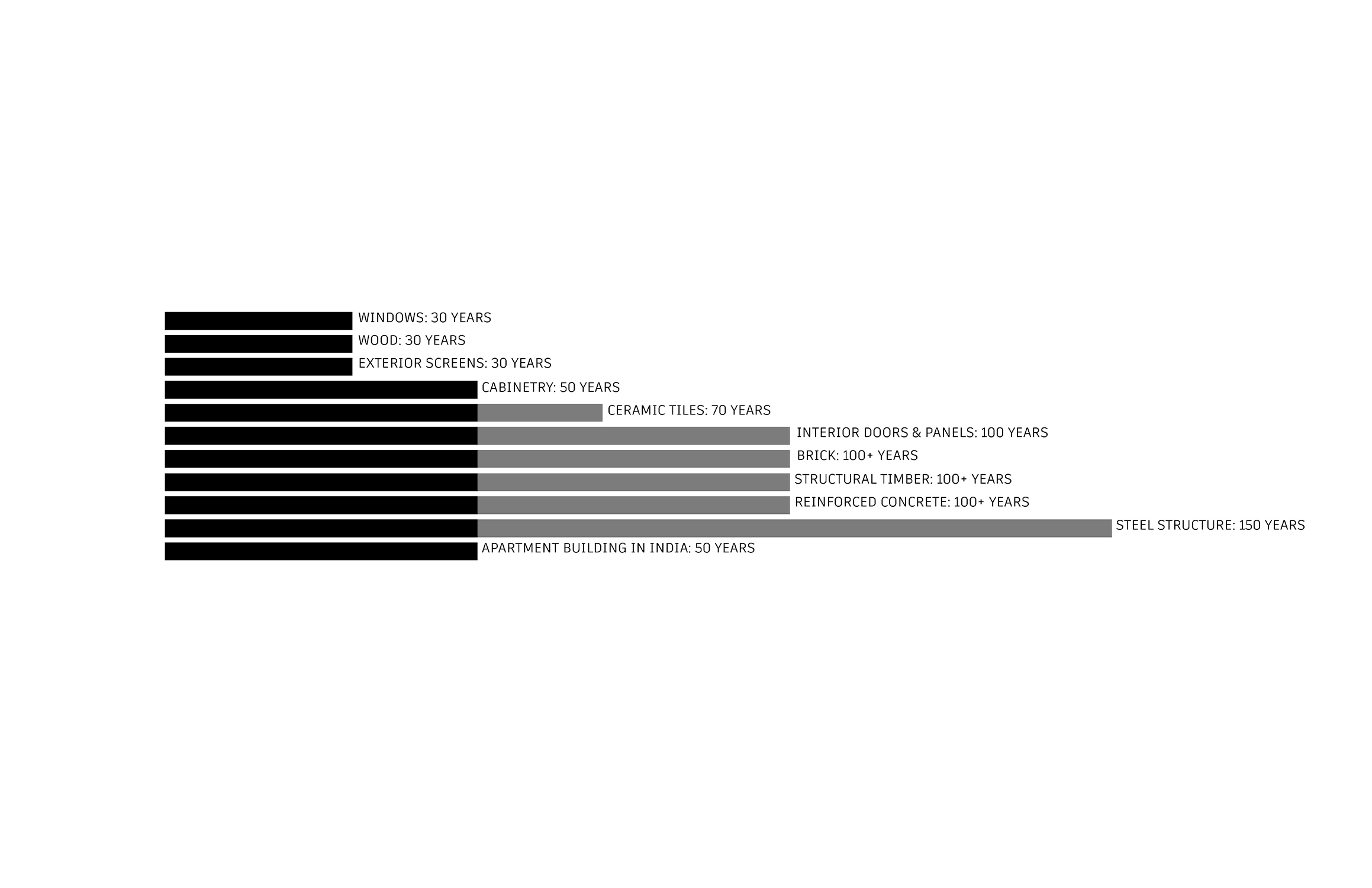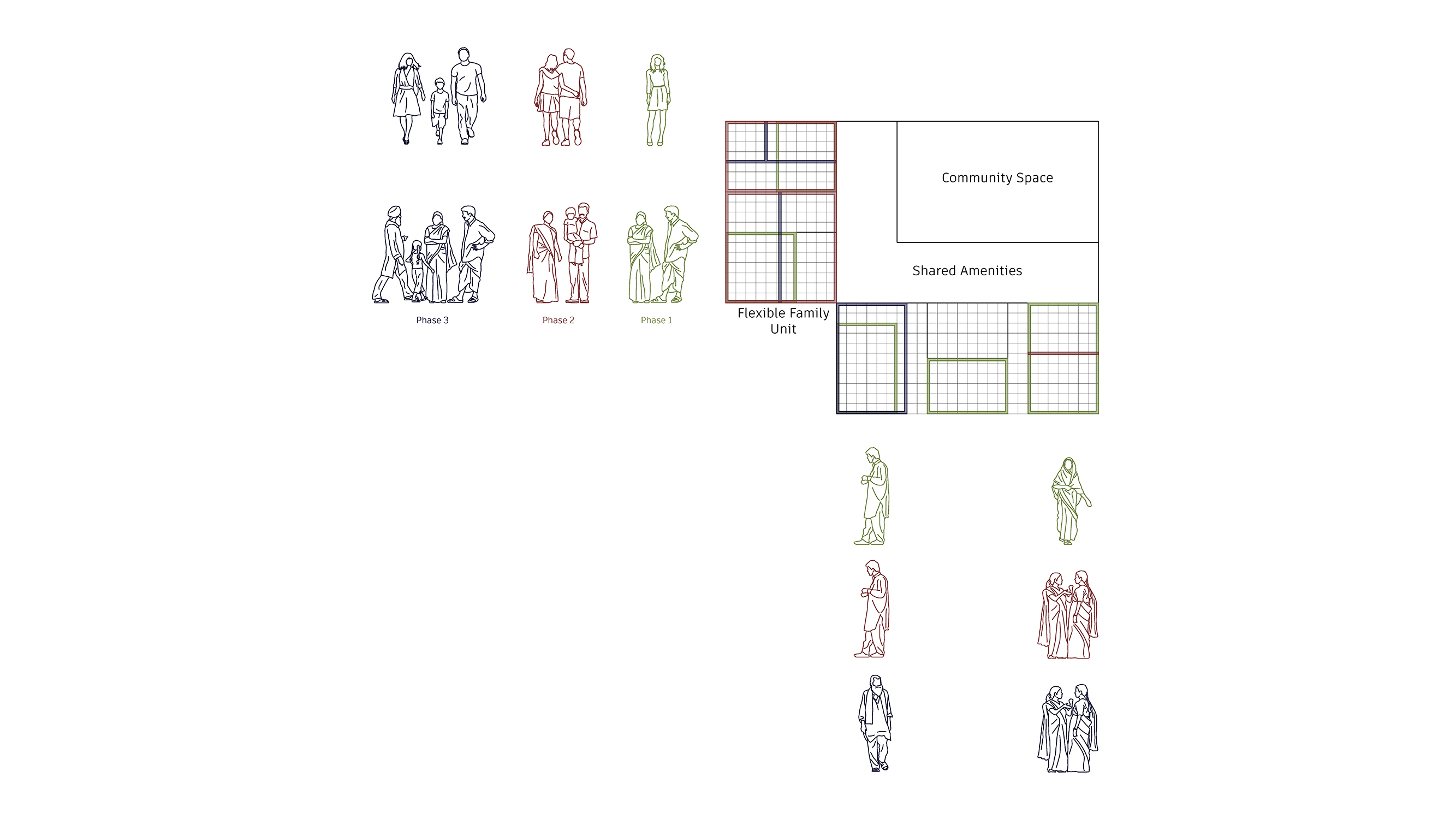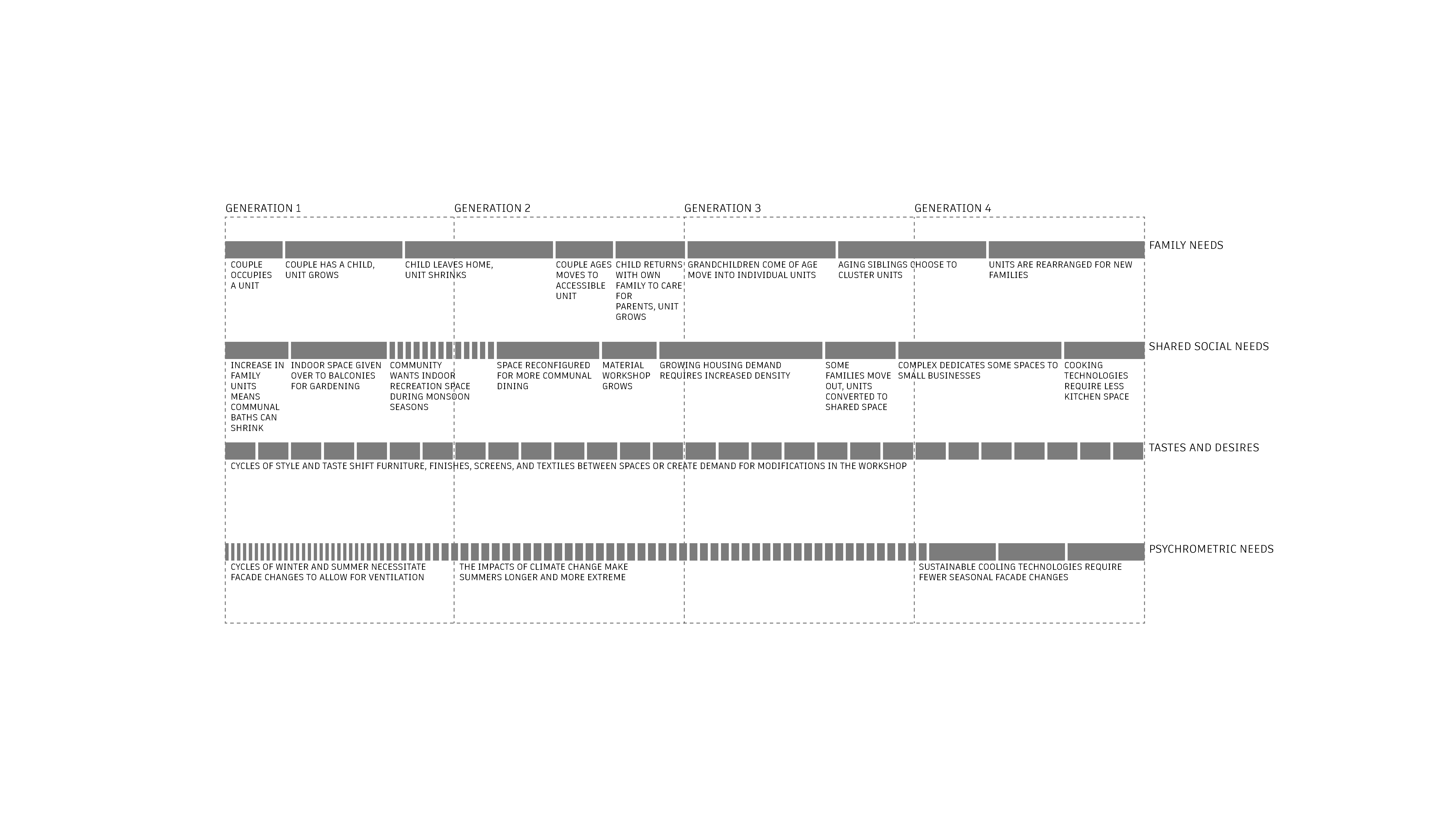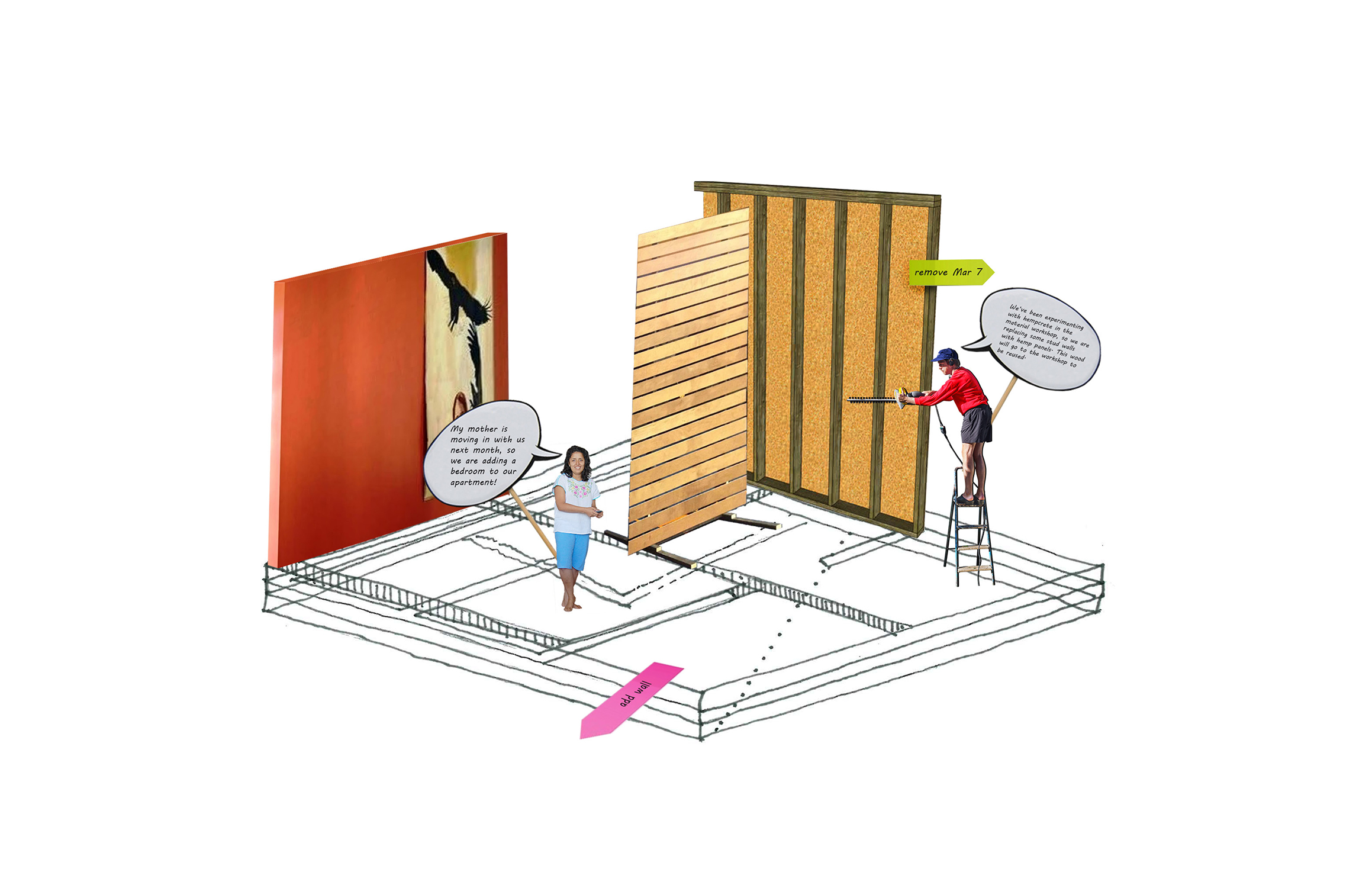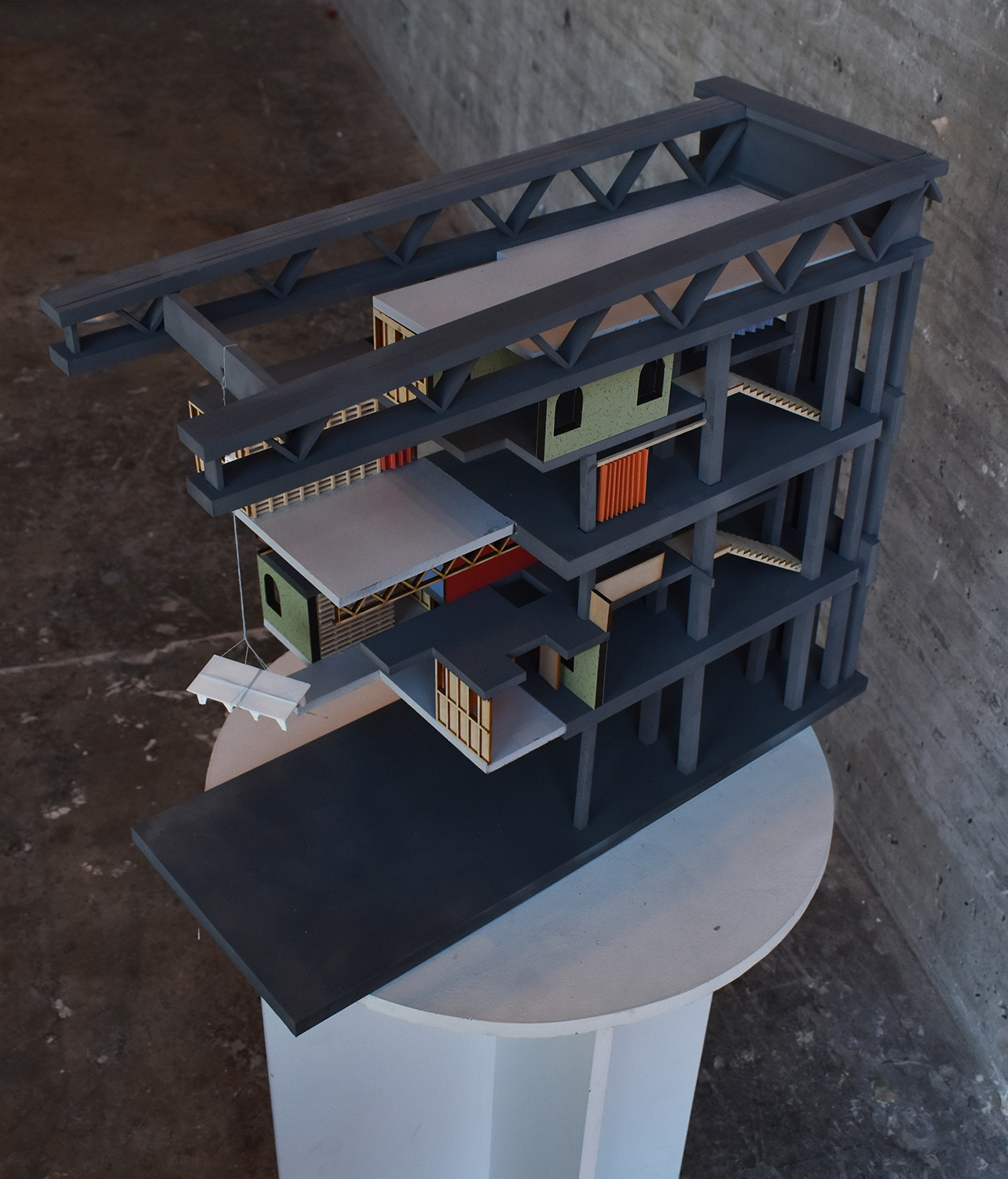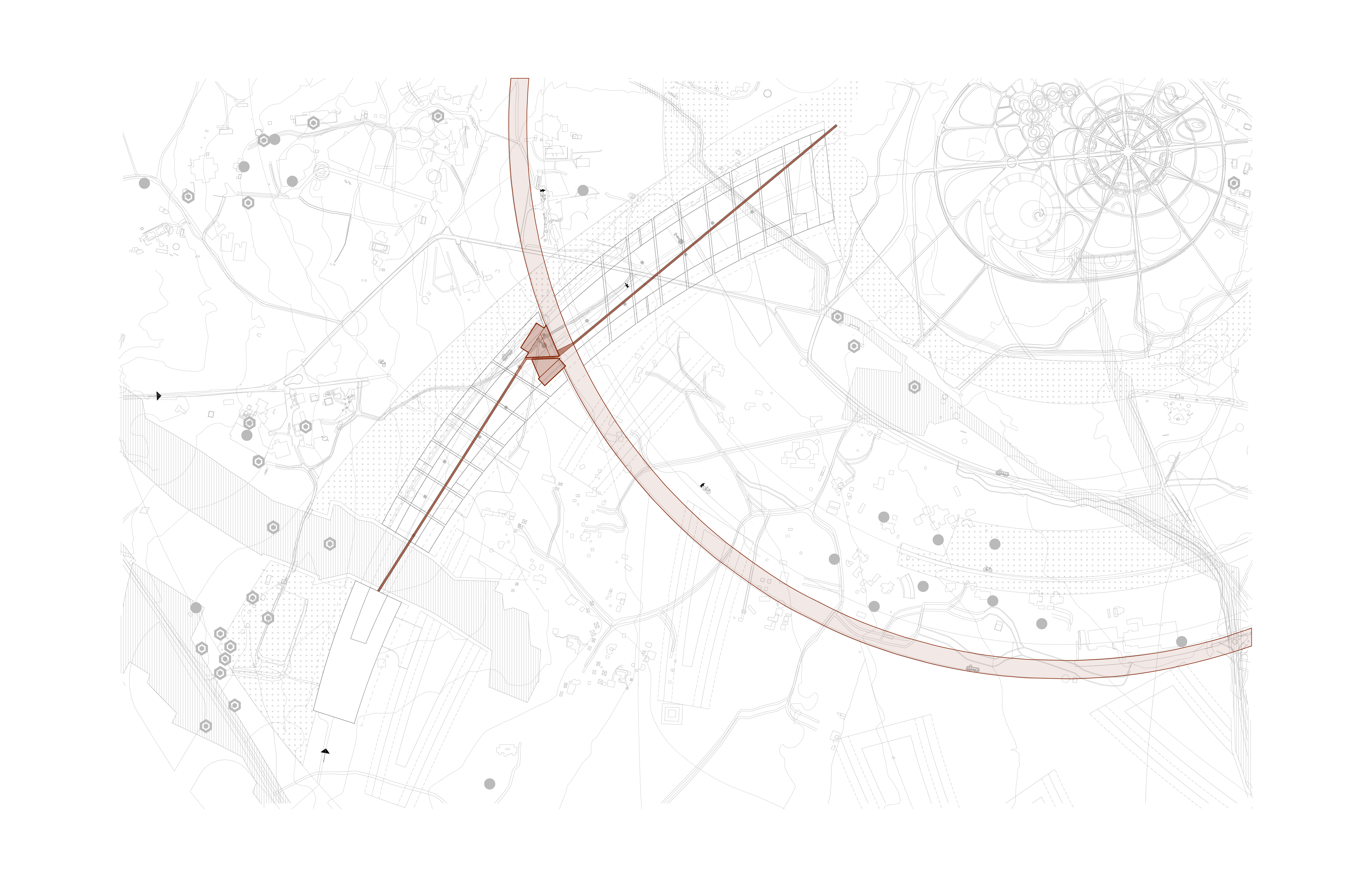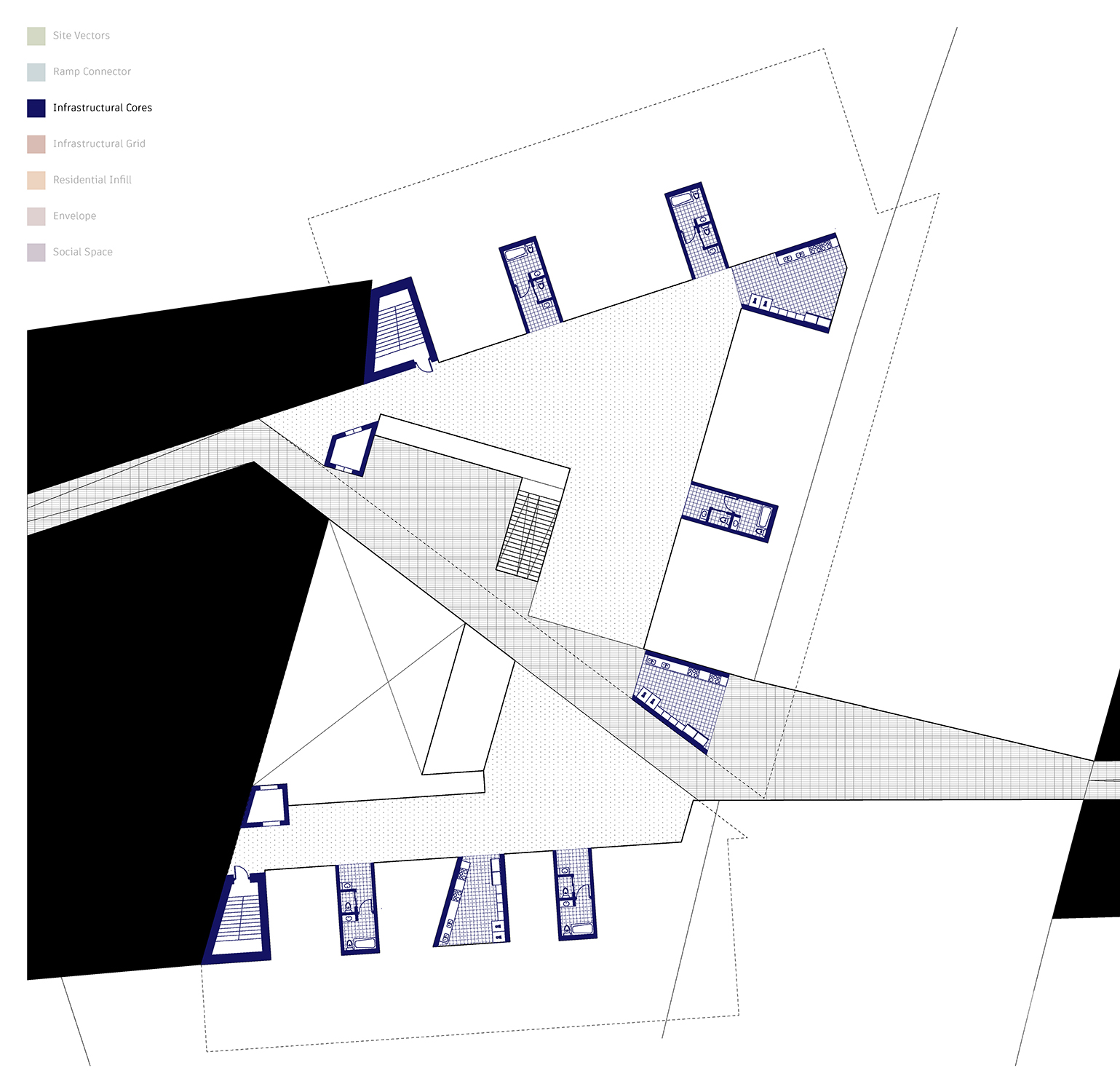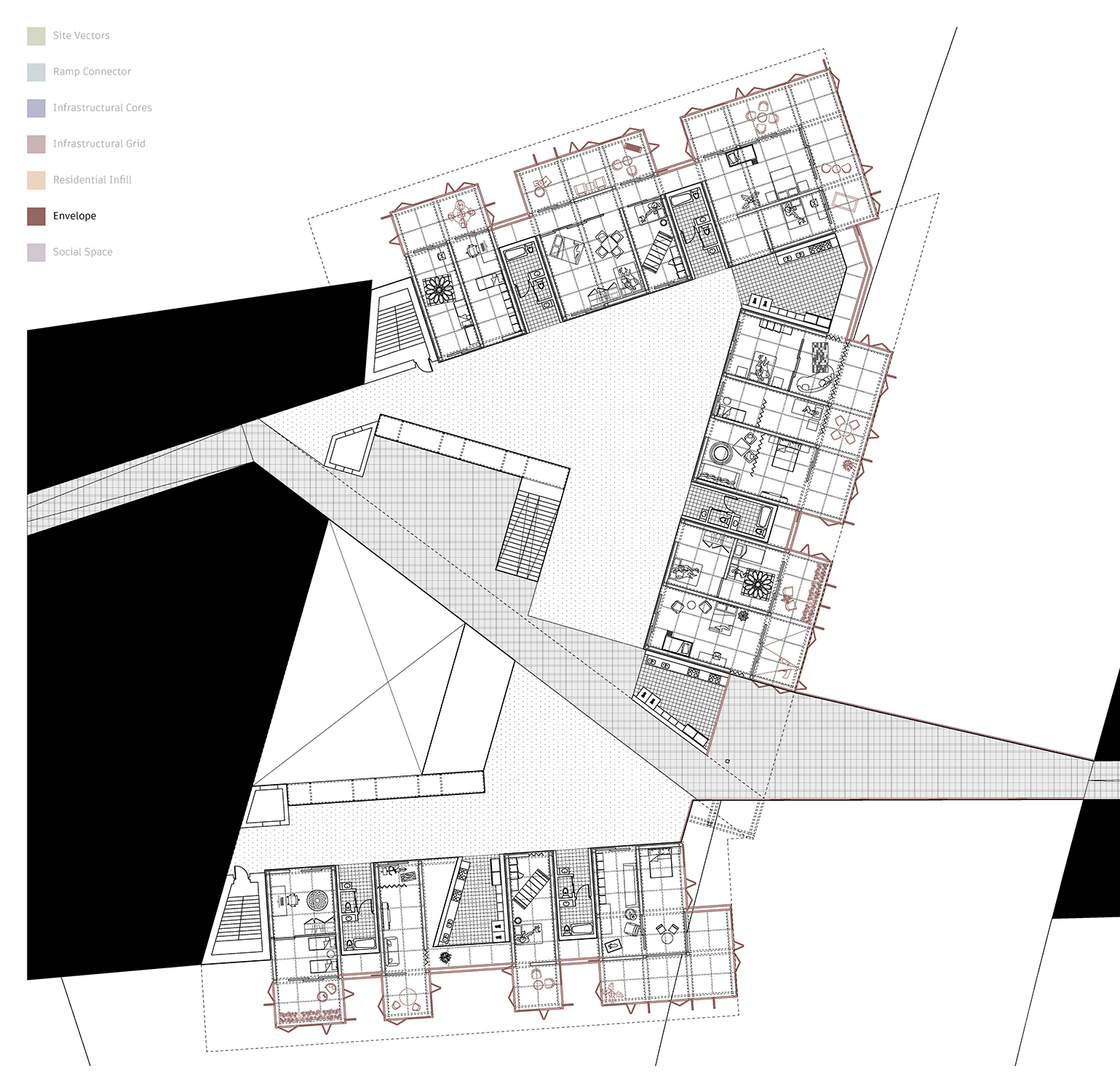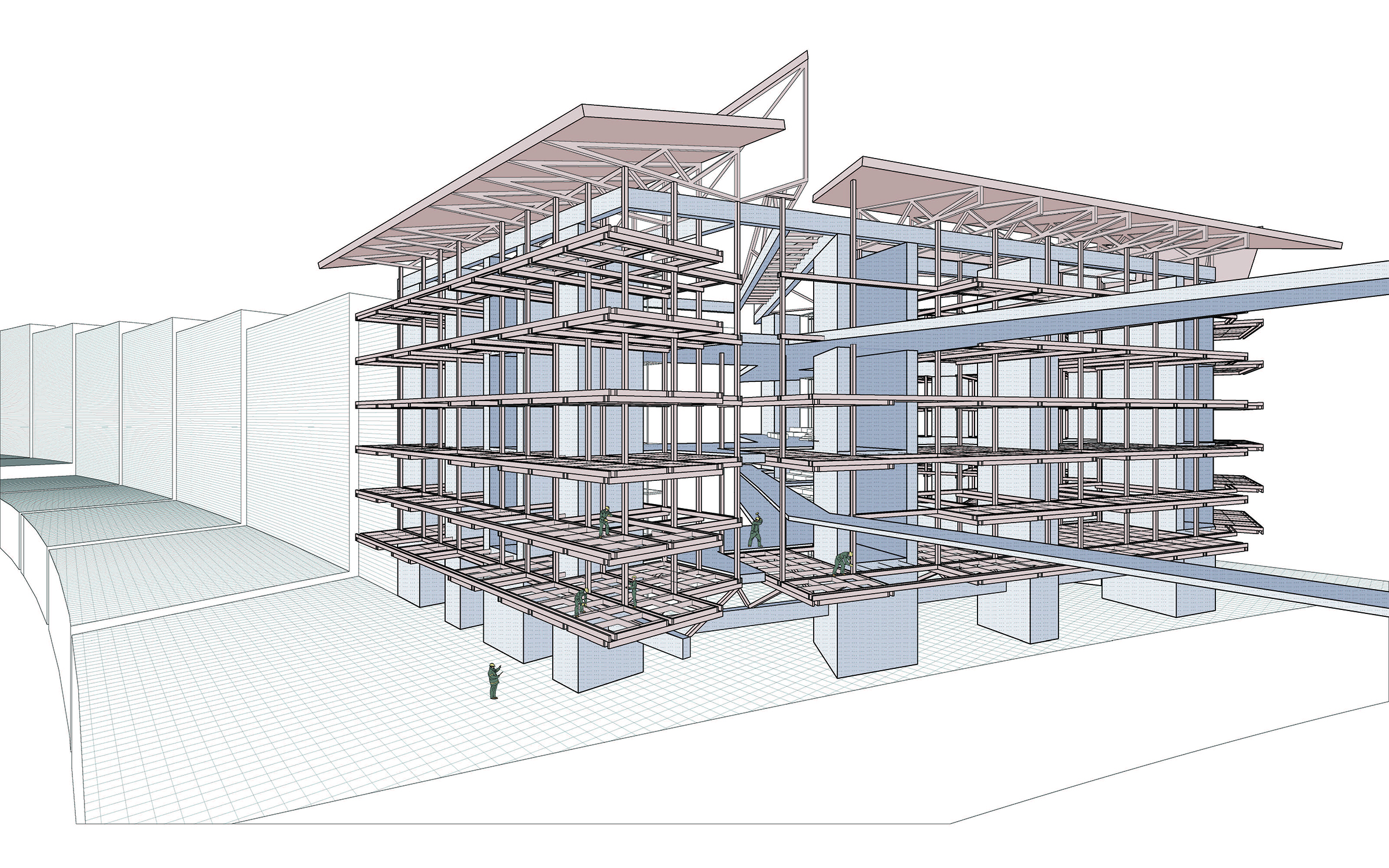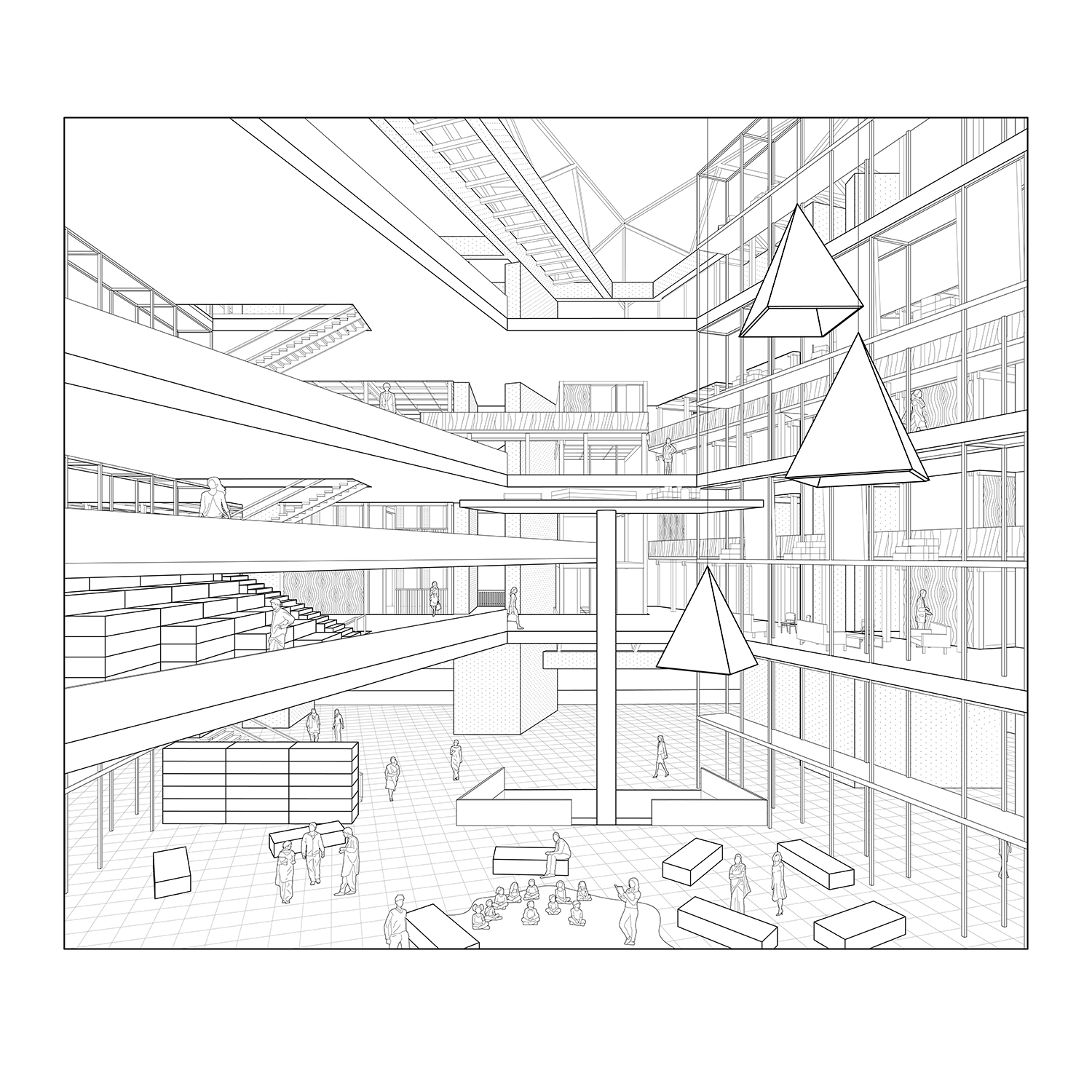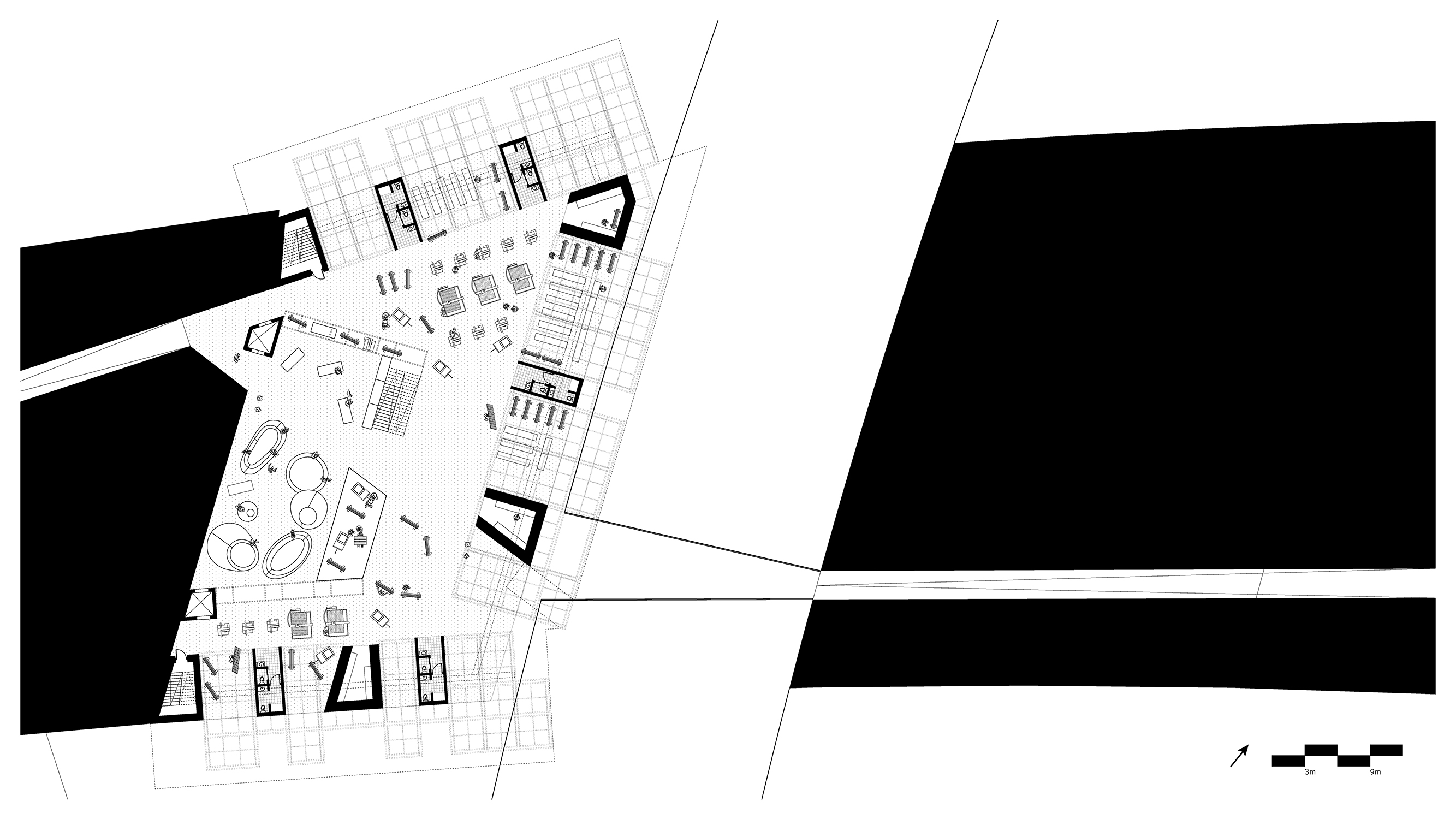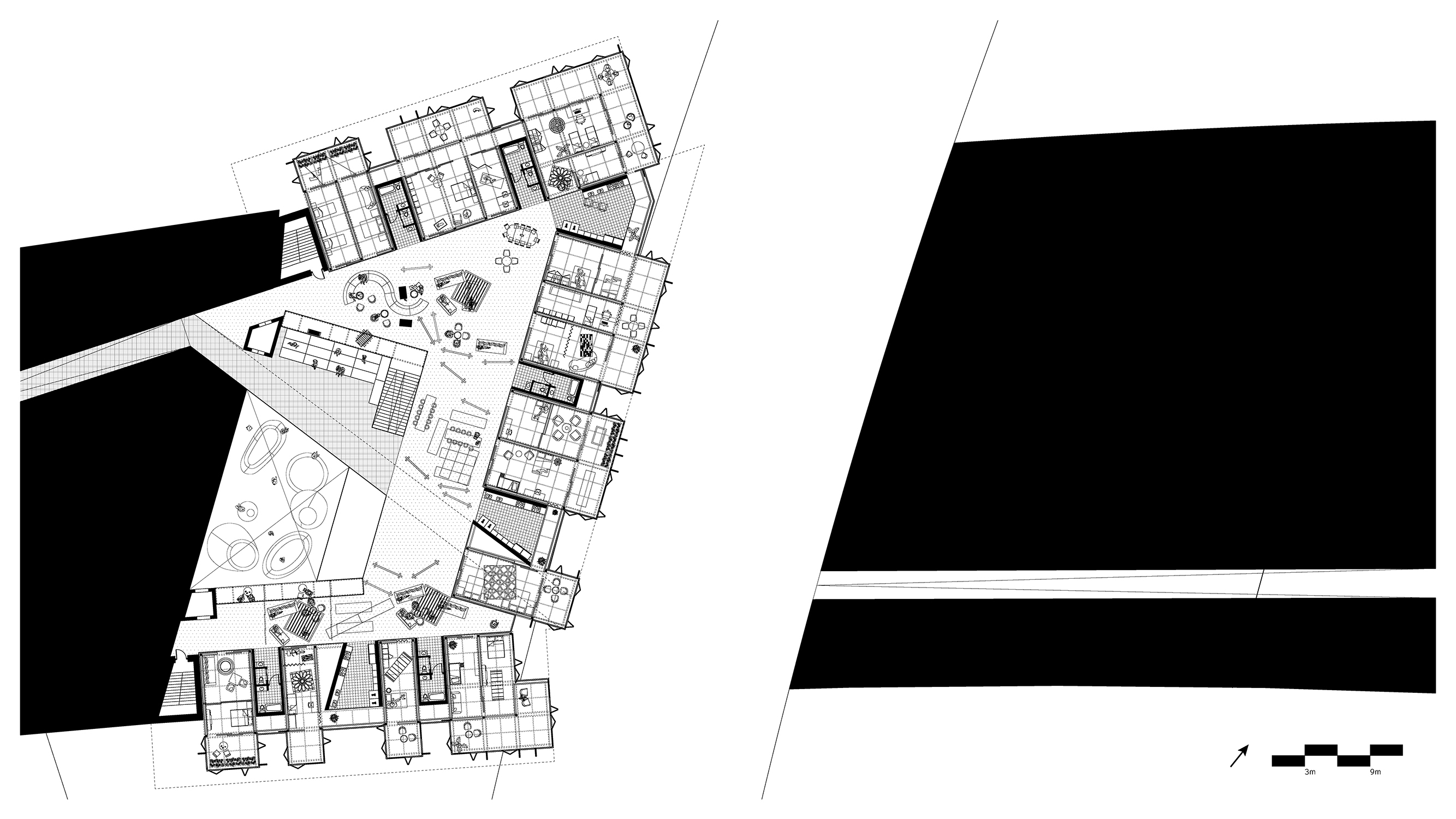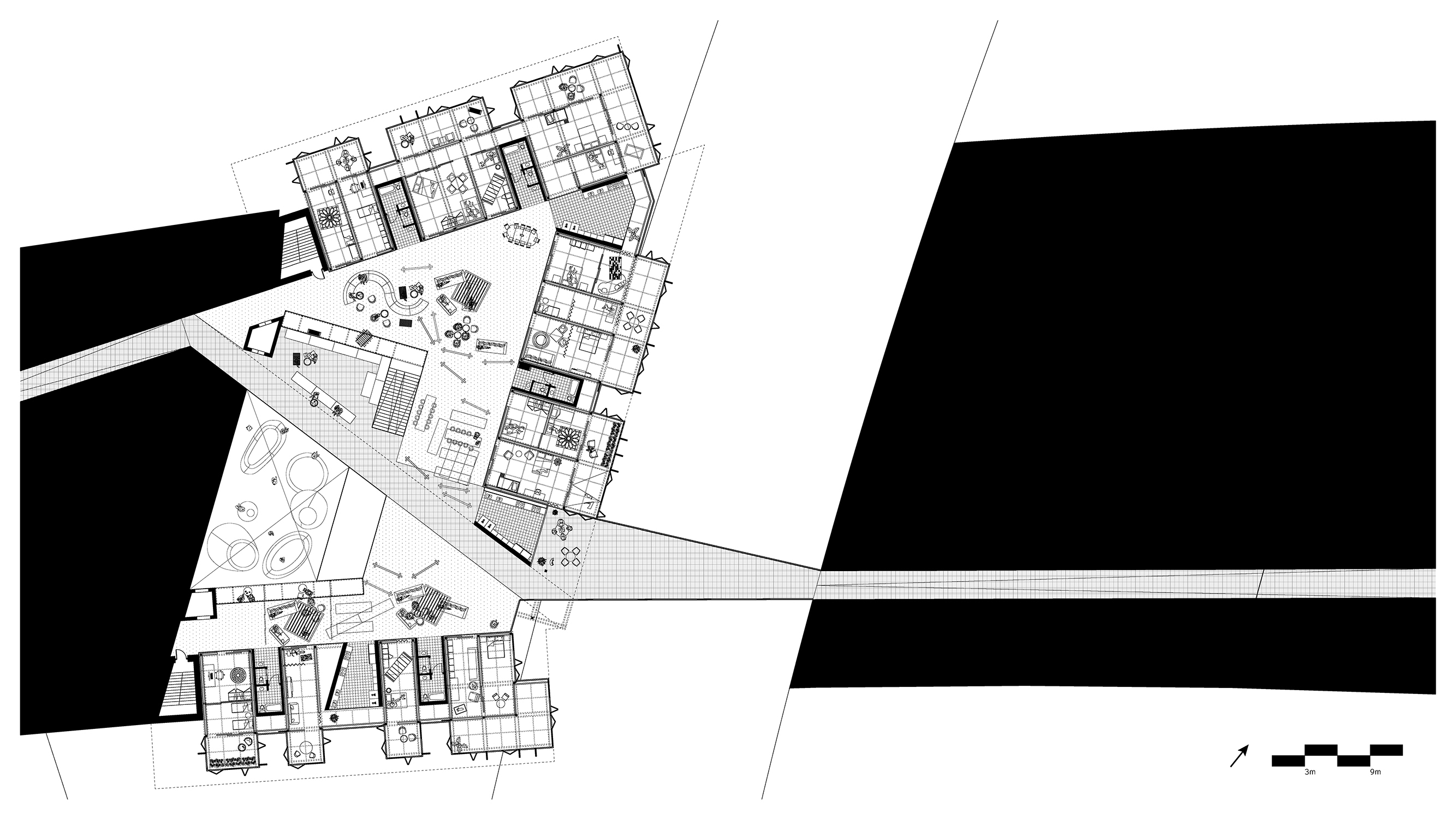Commodified housing relies on an individual ownership model with fixed
spatial and material boundaries. Static material boundaries tie all elements
of a building to a single, market-driven lifespan and limit the material agency of future residents.
Alternatively, this co-housing prototype seeks to extend material lifespans
through circular use and promote flexible boundaries that eliminate permanent, private ownership of units. Through material commoning, this
proposal restores occupants’ material agency and allows the building to be
continuously renewed.
An on-site material bank and workshop facilitates a community of craftsmen that experiment with flexible construction methods, primarily using
continuously recycled wood products.
Through this material changeability,
the boundaries of individual units and shared spaces are regularly redefined within a fixed logic of modularity, structure, and systems.
Elements ranging from furniture to entire wall systems can be moved to
accommodate seasonal changes, growing families, or social activities.
While the entire community shares material bank resources, clusters of
neighbors share cooking and bathing spaces. The community is organized
around a central public event atrium, which also acts as a connection point
between two Line of Goodwill pathways. The collective aspects of the prototype extend beyond its residents.
As Auroville grows, the city can look to the work done in this prototypical
community for new building construction concepts that promote sustainability, longevity, and co-ownership.
In collaboration with Andrew Economos Miller.


